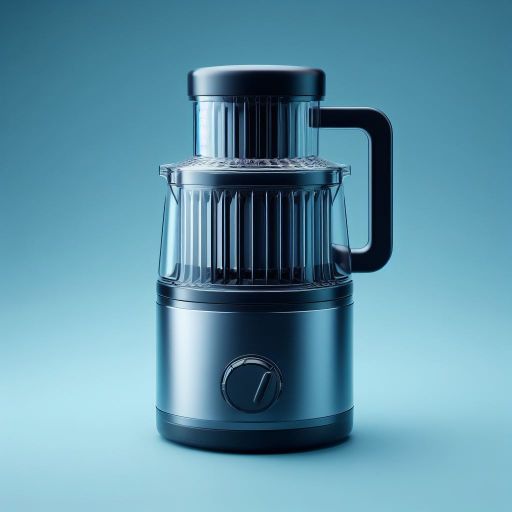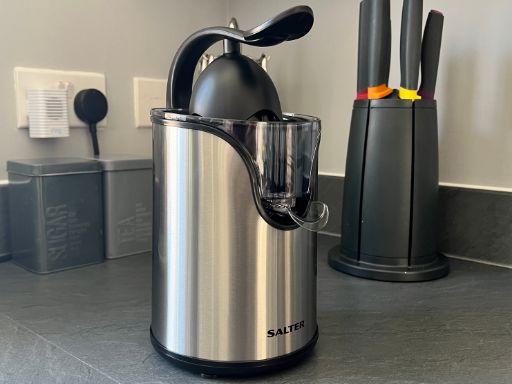Juicing is a great way to enjoy the benefits of fresh fruits and vegetables, but with so many options available, how do you choose the best juicer for your kitchen? In this article, we will compare three types of juicers: lemon juicers, hand juicers, and mini juicers, and help you decide which one suits your needs and preferences.
Lemon Juicer
A lemon juicer is a simple device that extracts the juice from lemons and other citrus fruits. A lemon juicer usually consists of a cone-shaped reamer that fits into a bowl or a cup and a handle or a lid that helps you press the fruit against the reamer. Some lemon juicers also have a filter or a spout to separate the pulp and seeds from the juice.

Lemon juicer is ideal for making small batches of juice, such as lemonade, salad dressing, or cocktails. They are easy to use, clean, store, and relatively inexpensive. However, they are not very efficient, as they leave some juice and pulp in the fruit and are unsuitable for juicing large or hard fruits, such as apples or carrots.
Hand Juicer
A hand juicer is a manual device that uses a lever or a crank to squeeze the juice from fruits and vegetables. A hand juicer usually consists of a feed chute, a blade, a filter, and a container. You need to cut the produce into small pieces and feed them into the chute, then turn the lever or the crank to push them against the blade and the filter and collect the juice in the container.

Hand juicer is more versatile than lemon juicer , as they can juice various fruits and vegetables, including leafy greens and wheatgrass. They are also more efficient, as they extract more juice and pulp from the produce, and are more durable, made of metal or plastic. However, they are more difficult to use, clean, store, and expensive. They also require more time and effort, as you must manually cut the product and operate the device.
Mini Juicer
A mini juicer is an electric device that uses a motor to spin a blade or an auger to extract the juice from fruits and vegetables. A mini juicer usually consists of a feed chute, a blade or an auger, a filter, and a container. You need to cut the produce into small pieces and feed them into the chute, then turn on the device, let it do the work, and collect the juice in the container.

Mini juicer is the most convenient and powerful type, as they can juice almost any produce, including nuts and seeds. They are also the fastest and easiest to use, clean, and store, and they have various features and functions, such as speed settings, pulp control, and safety locks. However, the mini juicer is the most expensive and noisy, consuming more electricity. The mini juicer also generates more heat and oxidation, which may affect the quality and shelf life of the juice.
Electric Citrus Juicer
An electric citrus juicer is a device that uses electricity to spin a reamer or a cone that presses against the citrus fruit and extracts the juice. An electric citrus juicer has many types and models of electric citrus juicers, and they vary in their features, functions, performance, and price. Some of the factors that you may want to consider when choosing an electric citrus juicer are:

- The size and shape of the reamer or cone determine how well the juicer can accommodate different sizes and shapes of citrus fruits, from small limes to large grapefruits. Some juicers have adjustable or interchangeable reamers or cones to fit different fruits, while others have a universal or fixed size.
- The speed and power of the motor: This affects how fast and how much juice the juicer can extract from the fruit. Some juicers have multiple speed settings or a variable speed control to adjust the juicing speed according to the type and ripeness of the fruit, while others have a single speed or a preset speed.
- The pulp and seed control refers to how the juicer handles the pulp and seeds separated from the juice. Some juicers have a strainer or a filter that catches the pulp and seeds and allows you to adjust the amount of pulp in the juice, while others have a spout or a nozzle that ejects the pulp and seeds into a separate container or a waste bin.
- The capacity and design of the juice container: This indicates how much juice the juicer can hold and how easy it is to pour and serve the juice. Some juicers have a built-in or detachable juice container with a handle, a spout, a lid, and a measurement scale, while others have a simple juice collector that requires you to transfer the juice to another vessel.
- The ease of use and cleaning relates to how simple and convenient it is to operate and maintain the juicer. Some juicers have a one-touch or a pressure-sensitive operation that automatically starts and stops the juicing process, while others have a manual or switch-based operation that requires you to turn on and off the juicer. Some juicers have dishwasher-safe or easy-to-clean parts that can be removed and rinsed, while others have hard-to-reach or sticky parts that need more scrubbing.
Conclusion
Choosing the best juicer for your kitchen depends on several factors, such as your budget, space, frequency of use, and personal taste. A lemon juicer may be the best option if you are looking for a simple and cheap device to make small amounts of citrus juice. A hand juicer may be the best option if you are looking for a versatile and efficient device to make large amounts of juice from various produce. A mini juicer may be the best option if you are looking for a convenient and powerful device to make quick and easy juice from any produce.
Whatever type of juicer you choose, read the instructions carefully, follow the safety precautions, and clean the device thoroughly after each use. Enjoy your fresh and healthy juice and happy juicing!







